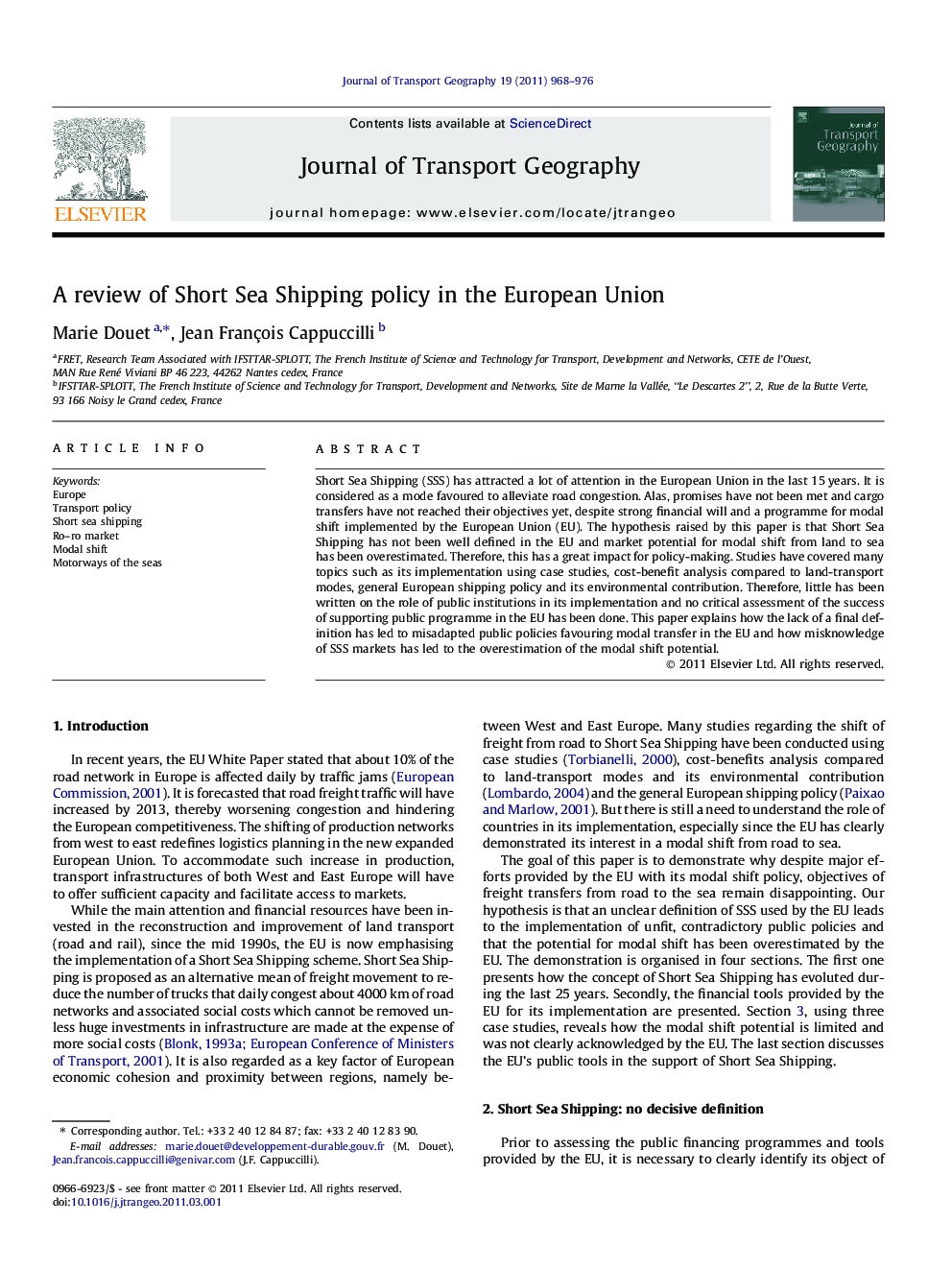| Article ID | Journal | Published Year | Pages | File Type |
|---|---|---|---|---|
| 1059530 | Journal of Transport Geography | 2011 | 9 Pages |
Short Sea Shipping (SSS) has attracted a lot of attention in the European Union in the last 15 years. It is considered as a mode favoured to alleviate road congestion. Alas, promises have not been met and cargo transfers have not reached their objectives yet, despite strong financial will and a programme for modal shift implemented by the European Union (EU). The hypothesis raised by this paper is that Short Sea Shipping has not been well defined in the EU and market potential for modal shift from land to sea has been overestimated. Therefore, this has a great impact for policy-making. Studies have covered many topics such as its implementation using case studies, cost-benefit analysis compared to land-transport modes, general European shipping policy and its environmental contribution. Therefore, little has been written on the role of public institutions in its implementation and no critical assessment of the success of supporting public programme in the EU has been done. This paper explains how the lack of a final definition has led to misadapted public policies favouring modal transfer in the EU and how misknowledge of SSS markets has led to the overestimation of the modal shift potential.
► The geographic criterion seems to be the most operative one for a SSS definition. ► The EU SSS policy is nowadays based on the “motorways of the seas” idea. ► Seaway infrastructure has been left out of EU (land) transport policies for years. ► Performance of EU programmes has been disappointing.
